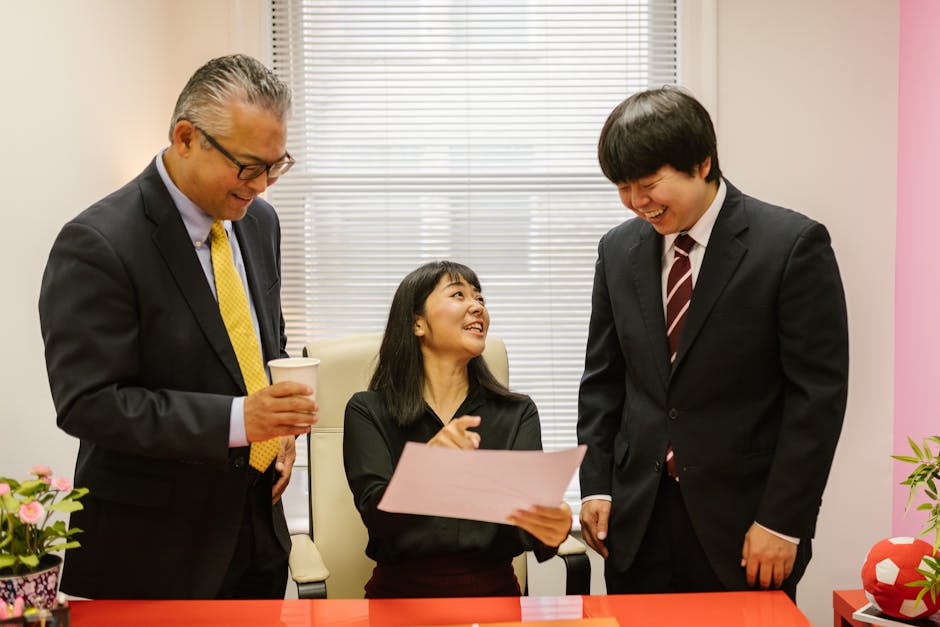100 Informal Japanese Phrases for Beginners: Speak Like a Local & Unlock Everyday Japan!

100 Informal Japanese Phrases for Beginners: Speak Like a Local & Unlock Everyday Japan!
Ah, Japan! The land of serene gardens, breathtaking bullet trains, and a culture so rich it's practically overflowing. But let's be honest, navigating the language can feel a little…intimidating at first. You might know konnichiwa (hello) and arigato (thank you), but what about when you want to chat with your friendly barista, compliment a delicious bowl of ramen, or just blend in with the casual vibe?
That's where these informal Japanese phrases come in! Forget stiff textbook Japanese; we're diving headfirst into the everyday language spoken by real people, in real situations. Think of it as unlocking a secret door to a more authentic and engaging Japanese experience. Ready to level up your language game and sprinkle some casual cool into your conversations? Let's go!
The Essentials: Greetings & Basic Interactions

Starting with the basics is always a good idea! These phrases are your bread and butter for casual interactions. They'll show respect while keeping things light and friendly.
- Ohayo! (おはよう!) - Good morning! (Very casual, often used with friends and family). Imagine strolling through a morning market, the scent of grilled fish in the air. A bright "Ohayo!" is the perfect way to greet the vendor.
- Konnichiwa! (こんにちは!) - Hello! (Standard greeting, but slightly less formal than its polite equivalent). Use this during the day. It's versatile and always appreciated.
- Konbanwa! (こんばんは!) - Good evening! (Same as above, but for evening hours). Picture yourself entering a cozy izakaya (Japanese pub) after a long day. "Konbanwa!" sets the right tone.
- Oyasumi (おやすみ) - Good night! (Very casual, usually to close friends and family before sleep). Imagine saying this to your travel buddy before drifting off to sleep in your traditional ryokan.
- Genki? (元気?) - How are you? (Informal). A quick and easy way to check in with someone you know.
- Genki dayo! (元気だよ!) - I'm good! (Informal response to "Genki?"). Add a cheerful tone!
- Daijoubu? (大丈夫?) - Are you okay? / Is everything okay? (Can also mean "No, thank you" depending on context). Super useful in a variety of situations.
- Daijoubu dayo! (大丈夫だよ!) - I'm okay! / Everything's okay! (Response to "Daijoubu?"). Reassuring and friendly.
- Wakarimasu ka? (分かりますか?) - Do you understand? (A direct question, but can be softened by tone). Useful if you're trying to communicate something important.
- Wakaranai (分からない) - I don't understand. (Simple and direct). A crucial phrase for any beginner.
- Onegaishimasu (お願いします) - Please. (More versatile than "kudasai", can also mean "I'm counting on you"). Use this when asking for a favor or requesting something.
- Arigato (ありがとう) - Thank you. (Casual, use with friends and family).
- Doumo (どうも) - Thanks / Very much. (Even more casual than "arigato"). Think of it as a quick and breezy "thanks."
- Sumimasen (すみません) - Excuse me / I'm sorry. (Extremely versatile, use for everything from bumping into someone to getting someone's attention). A must-know phrase for navigating public spaces.
- Gomen (ごめん) - Sorry. (More casual than "sumimasen"). For minor offenses or mistakes.
- Iie (いいえ) - No / You're welcome. (Depending on context). The equivalent of "no problem" after someone thanks you.
- Hai (はい) - Yes. (Simple and essential).
Foodie Fun: Ordering & Complimenting Meals

Japanese cuisine is a feast for the senses, and knowing a few phrases will make your dining experiences even more delightful. From slurping ramen to savoring sushi, these expressions will help you navigate menus and express your appreciation.
- Kore, kudasai (これ、ください) - This one, please. (Point at the menu item). A foolproof way to order when you're unsure of the name.
- Oishii! (美味しい!) - Delicious! (The ultimate compliment for any dish). Say it with enthusiasm!
- Sugoi oishii! (すごい美味しい!) - Really delicious! (Amp up the praise).
- Maji de oishii! (マジで美味しい!) - Seriously delicious! (A very informal way to express your delight). Use this with close friends.
- Itadakimasu (いただきます) - Let's eat! (Said before starting a meal). A cultural must-do!
- Gochisousama deshita (ごちそうさまでした) - Thank you for the meal! (Said after finishing a meal). Show your appreciation to the chef.
- Omachi do sama deshita (おまちどうさまでした) - Thank you for waiting. (Said by the staff when bringing your food).
- Osusume wa nan desu ka? (おすすめは何ですか?) - What do you recommend? (Ask the waiter for their favorite dish).
- Betsu betsu de (別々で) - Separately, please. (When splitting the bill).
- Kaikei, onegaishimasu (会計、お願いします) - Check, please. (To request the bill).
- Okanjou, onegaishimasu (お勘定、お願いします) - Check, please. (Another way to request the bill).
- Mizu kudasai (水ください) - Water, please. (Essential for quenching your thirst).
- Ocha kudasai (お茶ください) - Tea, please. (Often served complimentary).
- Atsui (熱い) - Hot! (Be careful with hot food and drinks!).
- Tsumetai (冷たい) - Cold! (Referring to a drink or food).
- Mou ippai (もう一杯) - Another one, please! (For drinks).
- Kanpai! (乾杯!) - Cheers! (Before taking a drink).
Shopping Spree: Navigating Stores & Markets

From trendy boutiques to bustling markets, shopping in Japan is an adventure. Arm yourself with these phrases to haggle (slightly!), ask for help, and snag those unique souvenirs.
- Ikura desu ka? (いくらですか?) - How much is it? (A crucial question for any shopper).
- Takai! (高い!) - Expensive! (Use sparingly, but it can sometimes work).
- Yasui! (安い!) - Cheap! (Useful for expressing surprise at a good deal).
- Kore wa nan desu ka? (これは何ですか?) - What is this? (Point at an item you're curious about).
- Eigo de hanasemasu ka? (英語で話せますか?) - Do you speak English? (If you're struggling to communicate).
- Kawaī! (可愛い!) - Cute! (A universal expression of adoration).
- Kakkoii! (かっこいい!) - Cool! / Stylish! (For something that looks fashionable).
- Mitemo ii desu ka? (見てもいいですか?) - May I look at it? (To examine an item more closely).
- Arigatou gozaimasu, mimasu (ありがとうございます、見ます) - Thank you, I'm just looking. (Politely decline assistance).
- Fukuro kudasai (袋ください) - Bag, please. (When you need a shopping bag).
- Kore, onegaishimasu (これ、お願いします) - This one, please. (When purchasing an item).
- Sumimasen, toilet wa doko desu ka? (すみません、トイレはどこですか?) - Excuse me, where is the toilet? (A vital phrase for any traveler!).
Out & About: Getting Around & Asking for Directions

Exploring Japan involves navigating public transport, asking for directions, and generally finding your way around. These phrases will help you stay oriented and get to where you need to go.
- Doko desu ka? (どこですか?) - Where is it? (The foundation for asking for directions).
- [Place] wa doko desu ka? ([Place]はどこですか?) - Where is [place]? (e.g., "Eki wa doko desu ka?" - Where is the station?).
- Kore wa doko ni ikimasu ka? (これはどこに行きますか?) - Where does this go? (When unsure about a train or bus).
- Chikai desu ka? (近いですか?) - Is it close? (To gauge walking distance).
- Tooi desu ka? (遠いですか?) - Is it far? (Opposite of the above).
- Massugu (まっすぐ) - Straight. (Used in giving directions).
- Migi (右) - Right. (Direction).
- Hidari (左) - Left. (Direction).
- Koko (ここ) - Here. (Point to your location on a map).
- Asoko (あそこ) - There. (Point to a location).
- Kamera o totte moraemasu ka? (カメラを撮ってもらえますか?) - Can you take a picture of me? (Politely ask someone to take your photo).
- Arigatou gozaimasu! Tasukarimasu! (ありがとうございます!助かります!) - Thank you! You're a lifesaver! (Express sincere gratitude for helpful directions).
Fun & Flirty: Casual Conversation & Compliments

Adding a touch of personality to your interactions can make your experience even more memorable. These phrases are for lighthearted conversations and expressing admiration.
- Sugoi ne! (すごいね!) - That's amazing! (Expressing awe or admiration).
- Ii ne! (いいね!) - Good! / Nice! (A general expression of approval).
- Omoshiroi! (面白い!) - Interesting! / Funny! (For something that amuses you).
- Yabai! (やばい!) - Amazing! / Awesome! / Oh no! (Extremely versatile slang, be mindful of context).
- Maji de!? (マジで!?) - Really!? / Seriously!? (Expressing surprise or disbelief).
- Honto ni? (本当に?) - Really? (A more polite version of "Maji de?").
- Chotto matte (ちょっと待って) - Just a moment. (Ask someone to wait).
- Ganbatte! (頑張って!) - Do your best! / Good luck! (A common encouragement).
- Omedetou! (おめでとう!) - Congratulations! (For special occasions).
- Kirei da ne! (綺麗だね!) - You're beautiful! / It's beautiful! (Depending on context). Use with caution and respect.
- Kakkoii ne! (かっこいいね!) - You're cool! / It's cool! (Complimenting someone's style).
- Suki da yo (好きだよ) - I like you. (Casual confession of affection). Use sparingly and only if you mean it!
- Wakaranai (わからない) - I don't know. (Simple and direct).
Level Up: Slightly More Advanced Phrases

Ready to take your Japanese to the next level? These phrases are a bit more nuanced and will help you express yourself more fully.
- Chotto muzukashii desu (ちょっと難しいです) - It's a little difficult. (When struggling with something).
- Maa maa desu (まあまあです) - So-so / Okay. (A neutral response).
- Tokidoki (時々) - Sometimes. (Describing frequency).
- Zenzen (全然) - Not at all. (Often used with negative verbs, e.g., "Zenzen wakarimasen" - I don't understand at all).
- Hima desu (暇です) - I'm free. (Having nothing to do).
- Isogashii desu (忙しいです) - I'm busy. (Opposite of the above).
- Tabun (多分) - Maybe / Probably. (Expressing uncertainty).
- Demo (でも) - But. (For introducing a contrasting idea).
- Dakara (だから) - Therefore / So. (For stating a consequence).
- Tatoeba (例えば) - For example. (Introducing an example).
- Sou desu ne (そうですね) - That's right / I agree. (A common conversational filler).
- Nani o shiteru no? (何をしてるの?) - What are you doing? (Asking about someone's current activity).
- Nani ga atta no? (何があったの?) - What happened? (Asking about an event).
- O genki de! (お元気で!) - Take care! (When saying goodbye).
Slang & Trendy Expressions: For the Cool Kids

Sprinkle in a few of these slang terms to sound like a true insider. Just be mindful of your audience and use them appropriately!
- Kimoi (キモい) - Gross! / Creepy! (A strong expression of disgust).
- Urusai (うるさい) - Noisy! / Shut up! (Can be rude, use with caution).
- Mendokusai (めんどくさい) - What a pain! / Troublesome! (Expressing annoyance at something tedious).
- Arienai (ありえない) - Unbelievable! / No way! (Expressing disbelief).
- Majime (真面目) - Serious / Earnest (Someone who is very focused).
- Donmai (ドンマイ) - Don't worry about it! (Borrowed from the English "Don't mind!").
- Riyakai (りょ) - Got it! (A super-short slang version of "Ryokai desu" - Roger that!).
- Wanchan (ワンチャン) - Maybe / Possibly (Slang version).
- Biore (ビオレ) - Beautiful (Young generation slang).
- Kusa (草) - LOL (Equivalent to "lol", comes from the kanji for grass, 笑).
- Gochisousama (ごちそうさま) - That was great (slang version).
- Tsun dere (ツンデレ) - Cold personality that slowly warms up to a love interest.
- Mottainai (もったいない) - What a waste! (Expressing regret over something wasted).
- Natsukashii (懐かしい) - Nostalgic.
- Otsukaresama desu (お疲れ様です) - Good work. (To appreciate someone's hard work).
So there you have it! 100 informal Japanese phrases to get you chatting, connecting, and experiencing Japan like a true local. Remember, language learning is a journey, not a destination. Don't be afraid to make mistakes, embrace the quirks, and most importantly, have fun! And hey, if you accidentally say something a little too informal, a sincere "Sumimasen!" will smooth things over every time. Now go out there and paint your Japanese adventure with the vibrant colors of everyday conversation!
Post a Comment